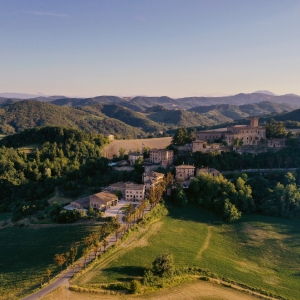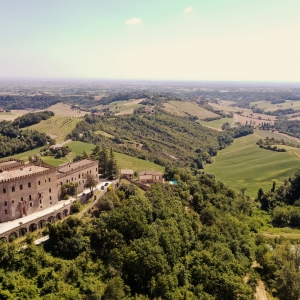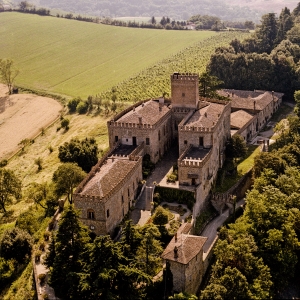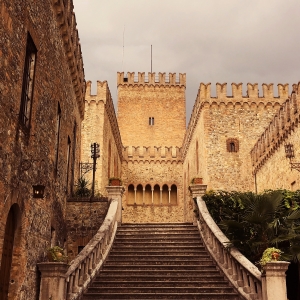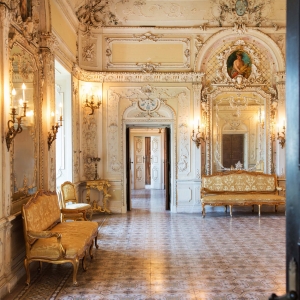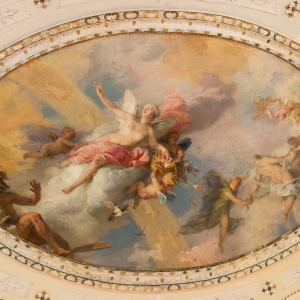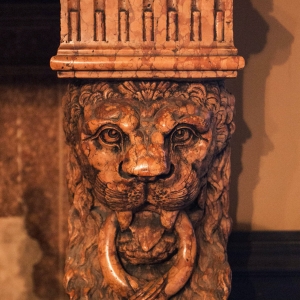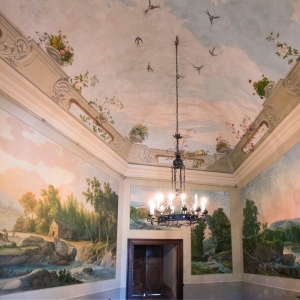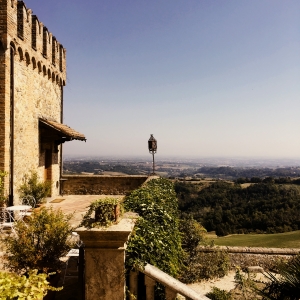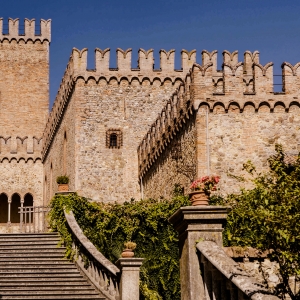In feudal times, the walls of the Castle of Tabiano were the backdrop for sieges, battles and betrayals, stories of war that stained the walls of many castles with blood.
Those same walls saw also sweet loves being born in the midst of so much violence and while the memory of so many wars has been erased, the magical name of a lady continues to shine today, 800 years later: Solestella da Bardi, lady of the Castle of Tabiano at the end of the XII century.
What a wonderful name for a medieval maiden! Let's imagine this little girl inside the majestic Bardi Castle running in the dark rooms on the wooden floors, under the watchful eye of her mother, aunts and maids. They call her out loud when she plays to hide behind a pile of wood by a fireplace or a cuirass left in the corridor and the caverns of the castle echo with voices "Solestella, Solestella, where are you, come here!".
Older, we see her during the rare celebrations peek at knights and ladies from some hole or from the doors leading into the kitchen, while the eye rests on some handsome and handsome young man, son of one of the father's friends, or of the troubadour, who with his songs leads to fantasize about distant worlds, beyond the river, beyond the mountains, towards the sea, towards the mysterious and great plain!
Her father, Arimanno da Bardi, proudly presents her to warrior friends and young knights eager to take her as a wife: here, my Solestella!
And with what pride he leads her to the altar in marriage to the powerful Guglielmo Pallavicino!
Now we see her in Tabiano embroidering precious tapestries, playing the lute, governing the servants. We try to imagine her by now a woman, in all her beauty, her hair gathered in a golden net, her draped clothes, admiring the vast panorama from the top of a window and the arrival at the Castle of Tabiano of ladies, knights and minstrels.
Three males are born from the marriage with Guglielmo, Uberto il Grande Pallavicino, Manfredi, lord of Scipione, and Pelavicino, the first troubadour in Northern Italy, who creates a small court of poets and minstrels in the Pellegrino Castle.


